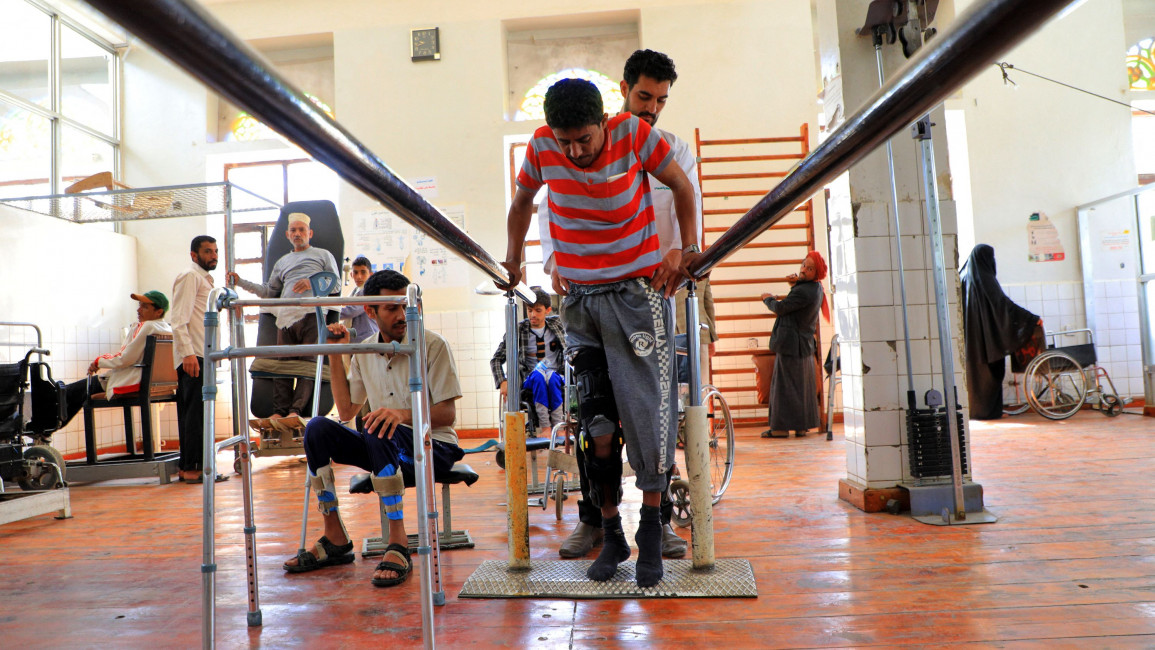Disabilities 'skyrocketing' in war-torn Yemen: aid group
The number of people with disabilities is soaring in Yemen after seven years of civil war, with amputations in particular rising from attacks on urban areas, the aid group Handicap International said on Friday.
Millions have been forced from their homes in the brutal conflict pitting the Saudi-backed government against Iran-aligned Houthi rebels, which has sparked widespread food shortages and ravaged the country's infrastructure.
"The rate of disabilities has skyrocketed since the beginning of the conflict," said Yasmine Daelman, the lead author of the Handicap International report that was provided to AFP.
Extensive use of explosive weapons in strikes, mines and stray bullets in populated areas have led to large numbers of amputations, according to the France-based group, and people with disabilities are always "the first to be forgotten", Daelman said.
Psychological traumas and mental health problems have also greatly increased as the war drags on, the report said.
The United Nations estimates that around 4.8 million people suffer from at least one disability in Yemen out of a population of 30 million, up from around three million before the war - though the numbers are impossible to verify due to a lack of official data.
A "complete collapse of the health system" means people with disabilities are not being protected as they should be, Daelman said, with access to hospitals and health services severely reduced.
The disabled sometimes have to travel for three days on dangerous roads for basic healthcare.
"It is quite shocking to see how they face very different challenges," Daelman said, citing the case of deaf people who no longer dare to leave their homes since they cannot hear attacks or explosions.
Around 380,000 people have died in the violence and millions have been displaced, the UN says.
Meanwhile the war in Ukraine has led to a drastic increase in the price of wheat and consequently bread, worsening the situation in a country where millions are on the brink of famine.
On Wednesday, Huthi rebels said they were considering renewing a UN-brokered truce with the government that is set to expire in two weeks.
And this week the first commercial flight in nearly six years took off from the rebel-held capital of Sanaa, a major step forward in a peace process that has provided rare relief from conflict.



